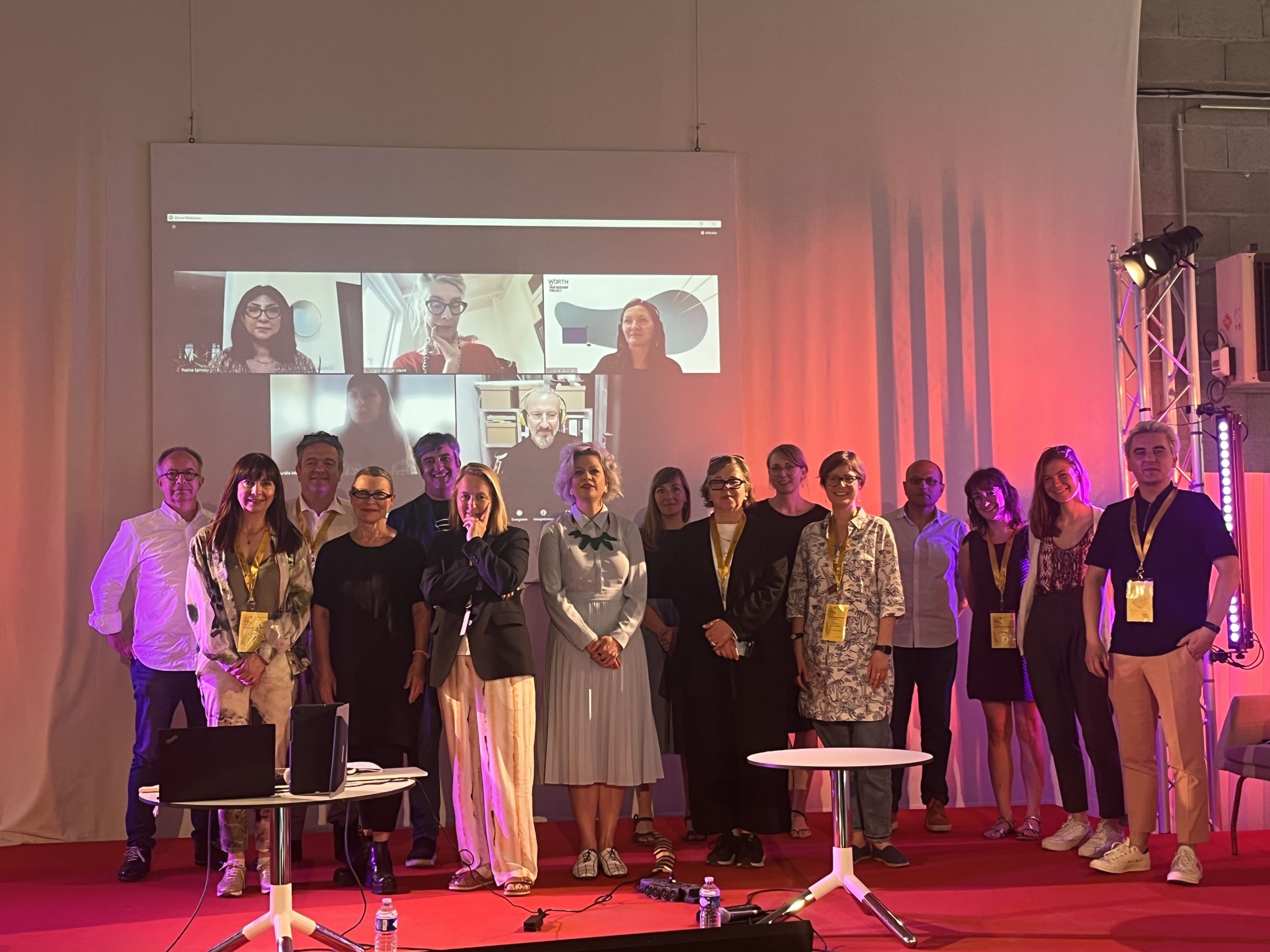
BEDA FORUM May 2022
On the 19th May 2022, during the Biennale International Design Saint-Etienne, the BEDA Forum discussed the important topic of “Design in European Policies and beyond”. As a renewed way of meeting after COVID, it was organised as a hybrid, merging online and in-person presence in the Theatre of the Biennale.
It’s a regular arrangement for BEDA members to meet experts from the European Commission at BEDA Forums (the first each year in May with the general assembly and the second at the end of the year). The BEDA Forum in May is always open to partners with the objective to reinforce existing collaborations and creating new ones. Päivi Tahkokallio, Founder and CEO of Tahkokallio Design+, and Past President of BEDA (2019-2021) moderated the conversation on the 19th.
The Forum covered discussions on the position and ambitions of design in European policies with members and representatives of the European Commission. Ruth Reichstein (European Commission’s Advisory Board I.D.E.A of the President of the European Commission) presented the progress of the New European Bauhaus initiative. Ilona Lelonek Hustin (DG GROW, Policy Officer Unit G2: Proximity, Social Economy, Creative Industries) presented the 14 industrial ecosystems identified by the current EU Industrial Strategy to support a fair and resilient recovery and to deliver on the ambitions of the green and digital transitions. These ecosystems, including a Cultural and Creative Industries ecosystem, are mobilised to set-up large scale skills partnerships, in the context of the Pact for Skills. Javier Sanfelix, Policy Officer (DG R&I, Industrial Transformation Unit) presented the Materials 2030 Manifesto that addresses the fragmentation of advanced materials in Europe’s R&I programming over several Pillars and Clusters, as well as the increasing complexity of developing new materials and processes.
“Design is increasingly recognised as key for innovation, for bringing ideas to the market and for ensuring that products and services are usable and sustainable. Businesses that use and invest in design tend to be more profitable and grow faster than those who do not. Those companies contribute to strengthening the role of design in the EU economy.”
– Ilona Lelonek Husting, Policy Officer: Proximity, Social economy and Creative industries, DG GROW, European Commission
Design, Cultural and Creative Industries (CCI) are driving forces to help develop the European Industrial Strategy through the fourteen sectoral ecosystems, and BEDA is part of several actions and working groups to support policies in Europe, including the New European Bauhaus initiative, the Task Forces of Industrial Forum, as co-leader for the Large scale Partnership for Pact for Skills in CCIs, and to create the Manifesto 2030 for Advanced Materials for Prosperity.
All BEDA members are encouraged to follow all these European Working Groups and to participate actively in the work (please contact [email protected] or [email protected]).
Lisa Lang (Director Policy & EU Affairs Orchestrator EIT Climate KIC) underlined the importance of knowing how to connect the dots to become even stronger in policy making, part of which is to know the language of policy making. She reminded that policy makers in the EU don’t always know how to ’speak design’ – and vice versa. Alok Nandi (IxDA) and Eija Salmi (Cumulus), on behalf of the Montréal Design Declaration Design Declaration Committee (ICoD, CUMULUS, IxDA, IFHP, IFLA, BEDA) expanded the discussions beyond Europe, with a global point of view.
Summing up discussions in the Forum, the question raised by Päivi Tahkokallio, moderator of the event, at the end of the conversation was if the place of the design was truly horizontal between all 14 industrial ecosystems instead of now being positioned as part of the Cultural and Creative Industries. The question will no doubt be further discussed between BEDA Members when the work continues to develop BEDA’s policy approach.
